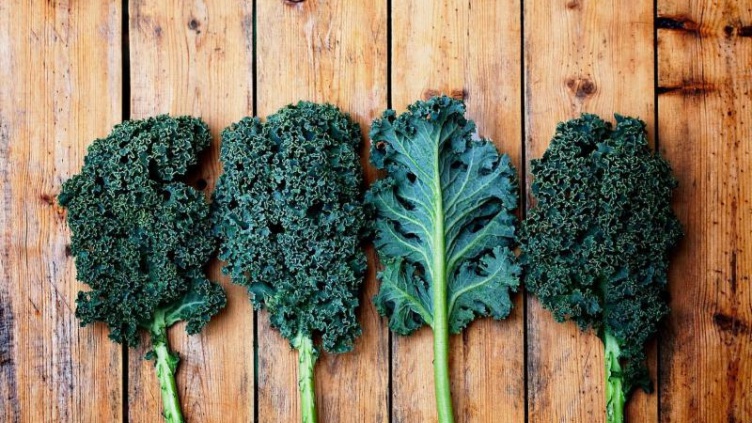Dear Vibrant Health Community,
It is our pleasure to share Superfoods with you that will help contribute to a vibrantly healthy life. Our Superfood of the Month is Kale.
Few greens can compare to the magnificent nutrient panel of kale, making it a highly nutrient-dense food. One cup of fresh raw kale supplies approximately 10,000 IU of vitamin A, primarily in the forms of beta-carotene. It also contains the other carotenoids lutein and zeaxanthin. These carotenoids have antioxidant properties that protect the body from free radicals. Eventually, the damage caused by free radicals can cause several chronic illnesses.
Lutein and zeaxanthin have been studied rigorously for their roles in eye health. Playing various protective functions, these two carotenoids that are established within the human retina not only scavenge free radicals, thereby protecting individuals from developing age-related macular degeneration and cataracts, but also guard against the damage caused by blue light. Fluorescent lighting, computer and video screens, cell phones and even alarm clocks emit damaging blue light that contributes to modern eye degeneration. This superfood is a necessary dietary supplement to combat the impairment committed by everyday technology.
Kale is also an excellent source of amino acids. It contains all nine essential amino acids making it an indispensable food source for vegans and vegetarians. It is also supported by several non-essential amino acids and contains all but two of the twenty amino acids present in protein. Another unique nutritional quality of kale is the presence of omega-3 fatty acids. Generally thought of as a nutrient only found in fish, seafood and flaxseeds, kale takes its place among omega-3 foods. Kale actually contains more omega-3 fatty acids than omega-6 fatty acids, which is rare among vegetables.
Kale also provides an impressive amount of vitamin K, containing 547 micrograms per one cup serving. Vitamin K is most often associated with blood clotting, but it has also been studied as an influential nutrient in bone mineralization. Postmenopausal women with risk factors for osteoporosis have presented with deficient vitamin K levels, contributing to bone loss.
Kale is a macronutrient-packed superfood that contains vitamins, minerals, antioxidants, amino acids and a hefty supply of fatty acids. These attributes make kale a remarkable addition to any healthy diet.
Here are some great Kale Recipes:
Homemade Kale Chips: a great snack, and easy to make! Simply tear up a head of kale into pieces and toss with 1-2 tablespoons of olive oil and a pinch of sea salt. Arrange on a baking sheet and bake at 350 degrees until crispy (approximately 20 minutes). Enjoy!
Kale also makes a great addition to smoothies.
Kale Coconut Green Smoothie Recipe:
- 1 banana, peeled (may use 1/2 cup of mixed berries instead)
- 1 orange, peeled and seeded
- 1 medium carrot, chopped
- 3 cups curly kale, stems removed
- 8 ounces unsweetened coconut milk
Remember, knowledge is powerful, so please share this information with everyone who will benefit from it.
Yours in Vibrant Health,
Dr. Salzarulo and Megan
